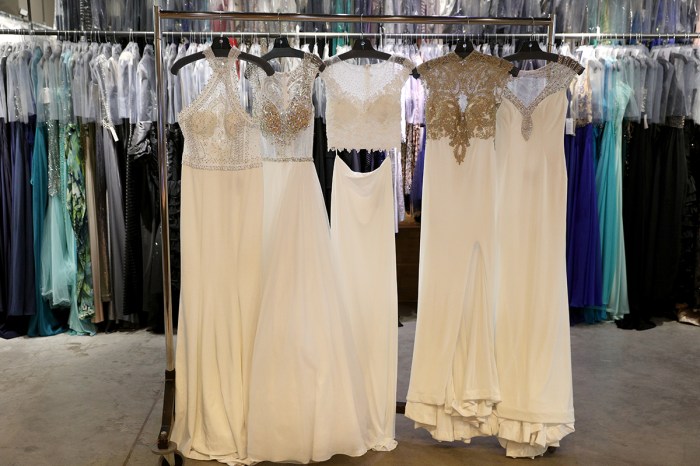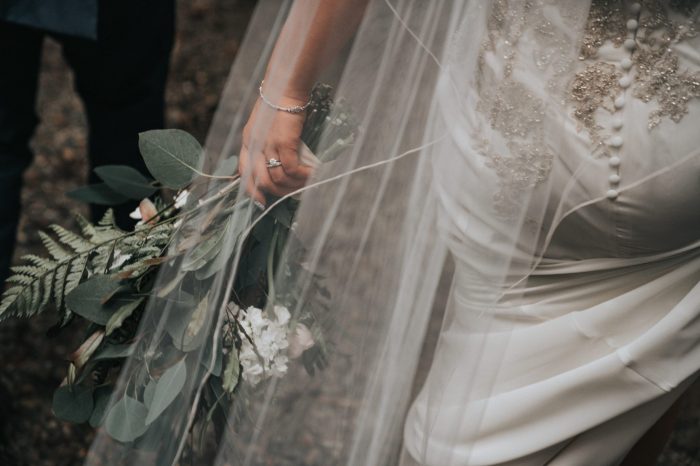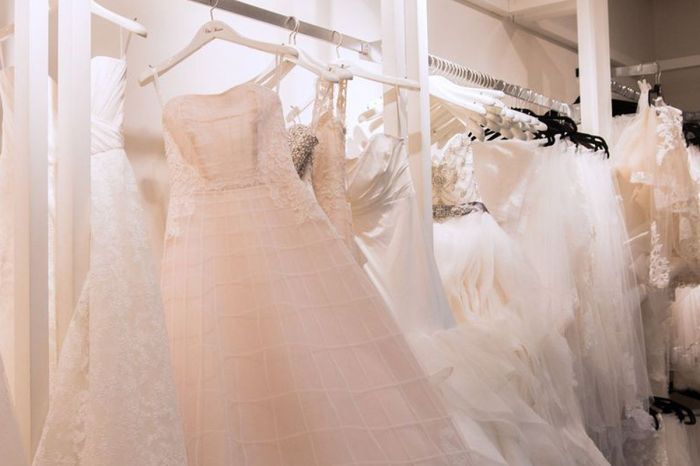Finding Your Perfect Wedding Dress: A Guide to Rental Options: Where Can You Rent A Wedding Dress

Source: thepennyhoarder.com
Where can you rent a wedding dress – Choosing a wedding dress is a significant part of wedding planning. For brides seeking a cost-effective and stylish solution, renting a dress offers a compelling alternative to purchasing. This guide explores various rental options, helping you navigate the process and find the perfect dress within your budget.
Rental Options: Types of Businesses
Several business models cater to the wedding dress rental market, each with unique advantages and disadvantages. Understanding these differences is crucial for making an informed decision.
| Business Type | Advantages | Disadvantages | Typical Price Range |
|---|---|---|---|
| Bridal Boutiques | Wide selection of designer dresses, expert consultations, professional alterations often included. | Higher rental costs, limited availability of specific sizes and styles. | $500 – $3000+ |
| Consignment Shops | More affordable prices, unique and often one-of-a-kind dresses. | Smaller selection, limited alterations, condition of dresses may vary. | $100 – $1000 |
| Online Marketplaces | Large selection, convenient browsing, potential for better prices. | Risk of receiving a dress different from expectations, shipping costs, limited in-person fittings. | $150 – $2000+ |
| Individual Sellers | Potentially very affordable, unique dress options. | Higher risk of fraud or damage, limited recourse if issues arise, no professional fitting services. | $50 – $500 |
For example, a high-end bridal boutique might stock a wide array of Vera Wang and Carolina Herrera gowns, targeting brides seeking luxury and designer labels. Conversely, a consignment shop might offer a curated selection of pre-owned dresses from various designers, appealing to budget-conscious brides. Online marketplaces like Stillwhite offer a vast selection from various sellers, while individual sellers on platforms like eBay or Facebook Marketplace often offer more unique, less expensive options.
The selection and services vary greatly depending on the business type.
Location-Based Search: Finding Local Renters, Where can you rent a wedding dress
Finding a local rental option involves strategic searching. Consider a bride in New York City searching for a dress. She might use a combination of online and offline methods.
A sample search query could be: “wedding dress rental NYC” or “pre-owned wedding dresses near me”. Variations could include specifying a dress style (“boho wedding dress rental NYC”) or price range (“affordable wedding dress rental Manhattan”).
Comparing results from Google, Yelp, and dedicated wedding planning websites will reveal different options. Google might prioritize businesses with strong online presence and , Yelp will showcase user reviews, and wedding websites might focus on curated listings of local vendors. This multifaceted approach increases the chances of finding the perfect dress.
Pricing and Budget Considerations
Rental costs are influenced by various factors, allowing for flexibility in budget planning.
- Dress Style: Simple A-line dresses generally cost less than intricate ball gowns. A simple A-line dress might rent for $300-$800, while an elaborate ballgown could range from $800-$2500 or more.
- Designer: Designer dresses command higher rental fees compared to less-known brands. A rental of a well-known designer gown could be $1000-$3000, while a lesser-known designer might range from $300-$1000.
- Rental Duration: Longer rental periods often incur higher costs. A standard rental might be for 2-3 weeks, with additional charges for extensions.
Factors such as dress condition (excellent vs. good), included accessories (veil, belt, etc.), and the shop’s location and reputation also influence the price. To stay within budget, brides should set a realistic budget early, compare prices from multiple vendors, and consider renting a less expensive dress style or opting for a less-known designer.
Rental Agreements and Policies

Source: wedding-experience.com
Rental agreements typically include crucial clauses that protect both the renter and the business. Carefully reviewing these terms is essential.
Common clauses include damage waivers (often an additional fee), cleaning fees (to cover professional cleaning after the rental), and late return penalties (daily charges for late returns). Comparing agreements from different vendors allows for identifying the most favorable terms, such as lower cleaning fees or more flexible return policies. Understanding these clauses helps avoid unexpected costs or disputes.
Dress Selection and Fitting Process

Source: vox-cdn.com
Selecting and fitting a rental dress involves several steps. Appointments are usually scheduled in advance, allowing for consultations with stylists to determine the most flattering styles and sizes.
Brides should research dress styles that complement their body type and wedding theme. A step-by-step guide for a fitting appointment would include: scheduling the appointment, bringing appropriate undergarments, selecting accessories to visualize the complete look, and communicating any specific preferences or concerns to the stylist. Alterations might be offered, depending on the rental business, and are often included in the price, but this is not always the case.
Alternatives to Traditional Rental
Several alternatives exist for obtaining a wedding dress beyond traditional rental.
| Option | Cost | Pros | Cons |
|---|---|---|---|
| Buying a Used Dress | Varies greatly | Potentially very affordable, unique options | Condition may be uncertain, limited alterations possible |
| Borrowing from Friend/Family | Potentially free | Cost-effective, sentimental value | Limited selection, may not fit perfectly, potential for damage |
| Purchasing a Sample Dress | Varies, often discounted | Lower cost than a new dress, readily available | Limited alterations possible, may have minor imperfections |
Each option presents unique advantages and disadvantages. Buying a used dress offers affordability but requires careful inspection. Borrowing is cost-effective but lacks choice and introduces risk. Purchasing a sample dress provides a balance between cost and availability.
Post-Rental Procedures
Returning a rented dress requires careful attention to detail. This ensures a smooth process and avoids potential penalties.
The return process usually involves cleaning the dress according to the vendor’s instructions. Thoroughly documenting the dress’s condition before and after the rental period (ideally with photographs) protects against unwarranted damage claims. Adhering to the return timeline and following all instructions minimizes issues and avoids late fees or other penalties.
Q&A
What is the typical timeframe for renting a wedding dress?
Rental periods typically range from a few weeks to a month, but this can vary depending on the vendor.
Can I alter a rented wedding dress?
Some rental companies allow for minor alterations, while others prohibit any changes to the dress. Always check the rental agreement.
What if the dress is damaged during the rental period?
Most rental agreements include damage waivers or fees, the specifics of which should be clearly Artikeld in the contract. Carefully review these terms before signing.
Finding the perfect wedding dress can be a challenge, with many brides opting to rent rather than buy. This approach extends beyond the bride’s attire; consider the guests’ outfits too. If you’re attending a wedding and seeking a stylish look, check out the beautiful selection of wedding guest dresses boho available online. Returning to the bride’s needs, numerous online platforms and bridal shops offer dress rentals, providing a cost-effective and sustainable option.
What payment methods are typically accepted for wedding dress rentals?
Common payment methods include credit cards, debit cards, and sometimes PayPal. Always confirm accepted payment methods with the vendor.
